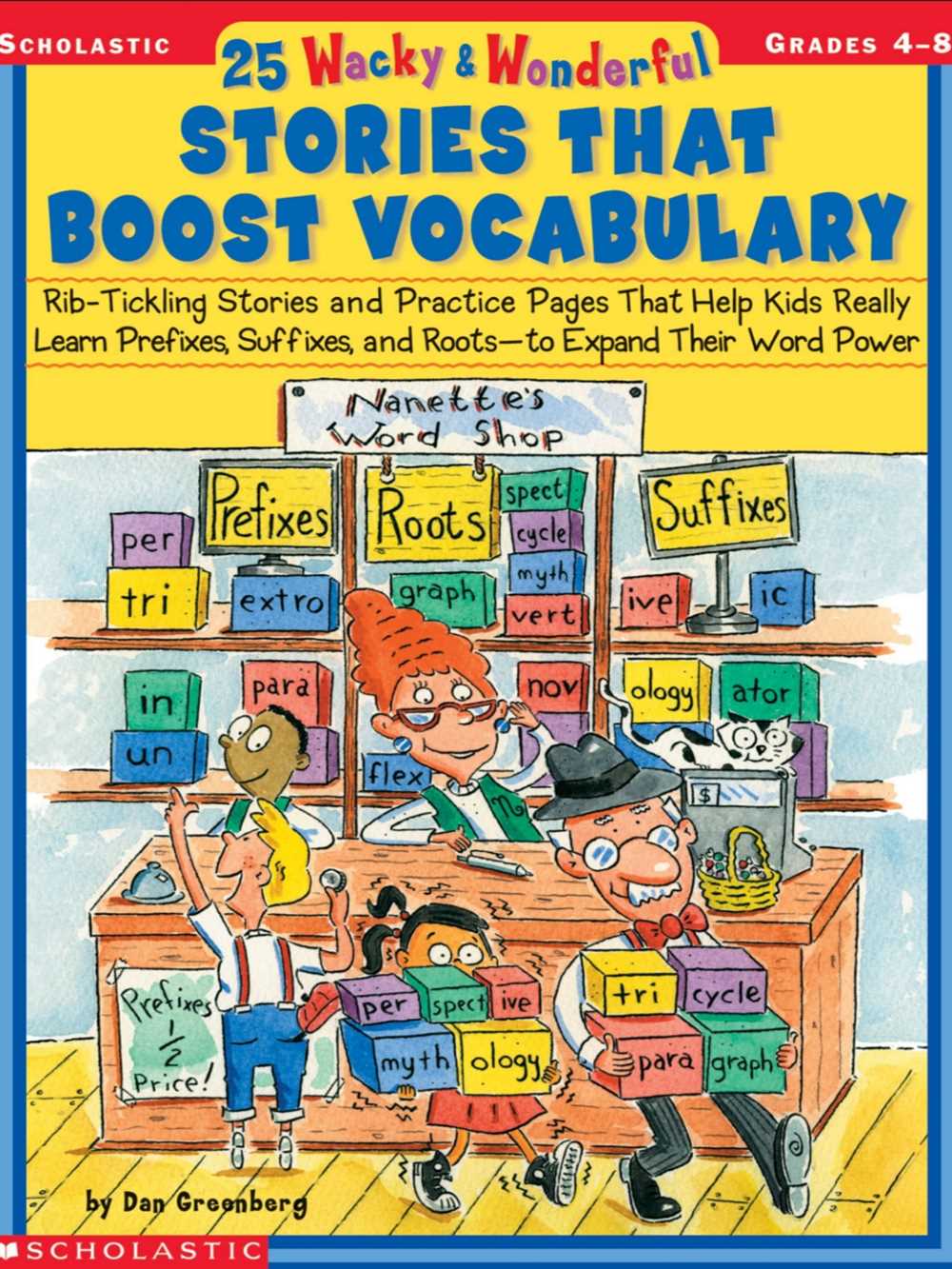
Language is a fascinating aspect of human culture, constantly evolving and adding new words to its vocabulary. While most words are straightforward and easily understood, there are some that are just downright wacky. These words might leave you scratching your head and wondering how they came to be. In this article, we will explore a few of these strange words and attempt to find answers to their origins.
One such word is “floccinaucinihilipilification.” Yes, it is quite a mouthful! This word, which means the act of describing something as worthless or unimportant, is believed to have originated in the 18th century. It combines four Latin words, each playing a specific role in creating its meaning. It’s a peculiar word that is rarely used in everyday conversation, but its complexity and uniqueness make it intriguing to linguistic enthusiasts.
Another peculiar word that deserves attention is “lackadaisical.” This word is commonly used to describe someone who is lazy or lacking enthusiasm. Its origin can be traced back to the 18th century, and it is believed to have come from the interjection “lackaday,” which was a popular expression expressing disappointment or regret. Over time, this word evolved to take on its current meaning, reflecting a lack of interest or energy.
What are Wacky Words?
Wacky words are a collection of unusual and amusing terms that are not commonly used in everyday language. These words often have unique meanings or sound funny when pronounced. They can add a touch of playfulness and creativity to conversations, writings, and even games. Some wacky words are so obscure that they might even make you question their existence, while others have become popularized through books, movies, or internet culture.
Wacky words can encompass a wide range of linguistic phenomena, including portmanteaus, onomatopoeic words, tongue twisters, and pure gibberish. They often have a lighthearted and whimsical nature, making them enjoyable to explore and use in various contexts. While they may not serve a practical purpose in terms of clear communication, they can spark amusement, laughter, and creativity.
Portmanteaus and Onomatopoeic Words
One type of wacky word is the portmanteau, which is a blend of two or more words to create a new word. Examples of portmanteaus include “brunch” (breakfast + lunch), “spork” (spoon + fork), and “smog” (smoke + fog). These words often bring together the sounds and meanings of their constituent parts in a clever and memorable way.
Onomatopoeic words are another type of wacky word that imitates or suggests the sound it represents. Examples include “buzz,” “splash,” and “moo.” These words can inject energy and liveliness into a conversation, as they vividly evoke the auditory experience they describe.
Tongue Twisters and Gibberish
Tongue twisters are phrases or sentences that are difficult to pronounce quickly and accurately due to their repetitive or challenging sounds. Examples include “Peter Piper picked a peck of pickled peppers” and “How can a clam cram in a clean cream can?” These wacky words are often used for entertainment and as a linguistic exercise to improve pronunciation and diction.
Gibberish, on the other hand, refers to a type of nonsensical or meaningless speech or writing. It consists of random syllables, sounds, or words that do not convey any coherent message. While gibberish may seem odd or perplexing, it can be used as a form of humor, code, or creative expression.
Overall, wacky words offer a playful and imaginative way to engage with language and bring a smile to people’s faces. Whether they make you giggle, challenge your speaking skills, or simply add a touch of absurdity to a conversation, wacky words are a delightful exploration of linguistic creativity.
Definition and examples
When it comes to language, words have the power to be both informative and entertaining. Sometimes, we come across wacky words that tickle our funny bones or leave us scratching our heads. These words are often obscure or have unusual spellings or pronunciations. However, they can also enrich our language and provide us with new ways to express ourselves. Here are a few examples of wacky words that have intriguing definitions and usage:
1. Lollygag
Definition: To spend time aimlessly or to dawdle.
Example: Sarah had a lot of work to do, but she couldn’t resist lollygagging in the park instead.
2. Gobbledygook
Definition: Language that is meaningless or hard to understand, often used in official or professional settings.
Example: The legal document was filled with so much gobbledygook that even the lawyers struggled to comprehend its meaning.
3. Kerfuffle
Definition: A commotion or fuss, usually over something trivial.
Example: The argument over who would get the last slice of pizza resulted in a kerfuffle between the roommates.
4. Brouhaha
Definition: A noisy and overexcited reaction or response to something.
Example: The announcement of the surprise concert caused a brouhaha among the fans, who rushed to secure their tickets.
5. Flibbertigibbet
Definition: A frivolous or flighty person who lacks seriousness.
Example: Despite her reputation as a flibbertigibbet, Nancy occasionally surprised everyone with her deep insights and intelligence.
6. Hullabaloo
Definition: A loud and chaotic noise or disturbance.
Example: The children’s birthday party turned into a hullabaloo as they excitedly played games and opened their presents.
Wacky words like these add color and quirkiness to our vocabulary. They make language more playful and allow us to have fun while communicating. So next time you come across a wacky word, embrace its uniqueness and make it a part of your linguistic repertoire!
Why are Wacky Words important?
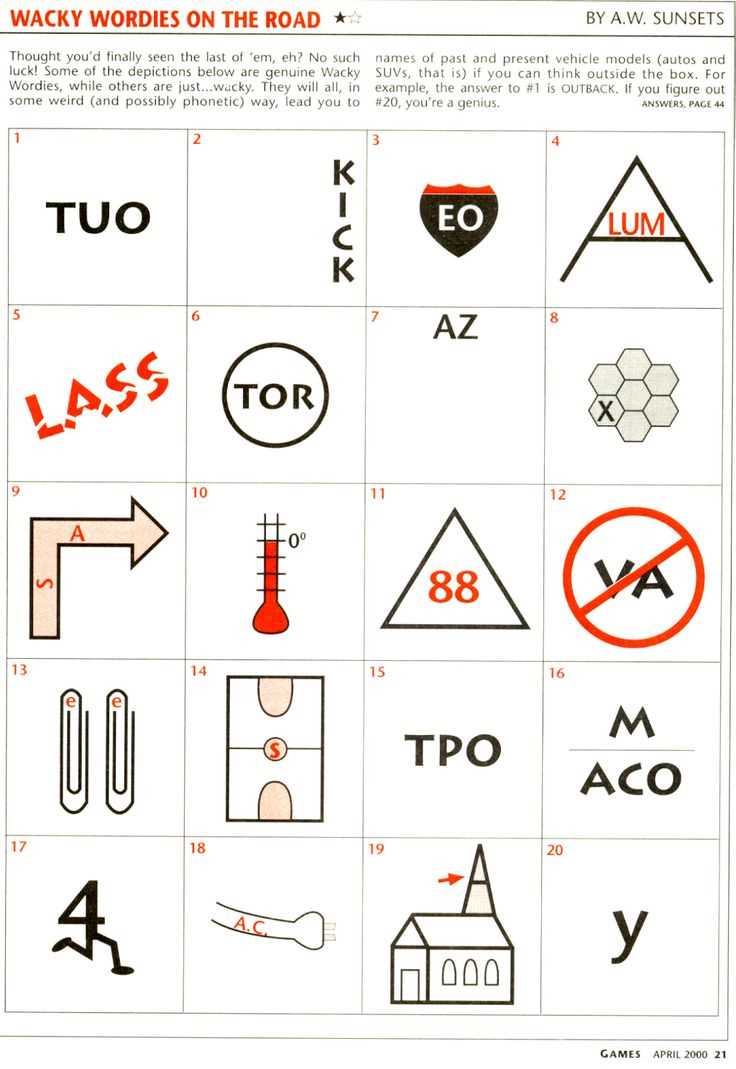
Wacky Words, despite their unconventional and quirky nature, play a crucial role in language learning and development. These unconventional words challenge our understanding of language, expand our vocabulary, and encourage creative thinking. They add an element of fun and excitement to the process of learning, making it more engaging and memorable.
Building Vocabulary: Wacky Words introduce learners to new and unfamiliar words that are not commonly used in everyday conversations. By exposing learners to these unique words, they have the opportunity to expand their vocabulary and improve their language skills. These words also often have interesting origins or stories behind them, making them even more fascinating to explore and learn.
Developing Creativity: Wacky Words encourage learners to think outside the box and be more creative with their language use. These words push learners to come up with new and imaginative ways to express themselves, allowing them to break free from traditional and clichéd language patterns. This fosters a sense of originality and individuality, while also stimulating the mind and promoting critical thinking.
Enhancing Communication Skills: Learning and using Wacky Words helps learners become more effective communicators. These unconventional words often have subtle nuances and shades of meanings that can add depth and precision to one’s expression. Incorporating these words into conversations and writing can make language more colorful, engaging, and memorable, helping learners effectively convey their thoughts and ideas.
Sparking Interest in Language Learning: Wacky Words inject an element of fun and lightheartedness into the process of language learning. They can make the learning experience more enjoyable and entertaining, motivating learners to stay engaged and continue their language learning journey. These words can also serve as conversation starters and icebreakers, creating opportunities for language learners to share interesting words and learn from each other.
In conclusion, Wacky Words are important because they enrich our vocabulary, foster creativity, enhance communication skills, and make language learning more enjoyable. By embracing and exploring these unconventional words, learners can open up a whole new world of linguistic possibilities and develop a deeper appreciation for the diversity and richness of language.
Benefits of using Wacky Words
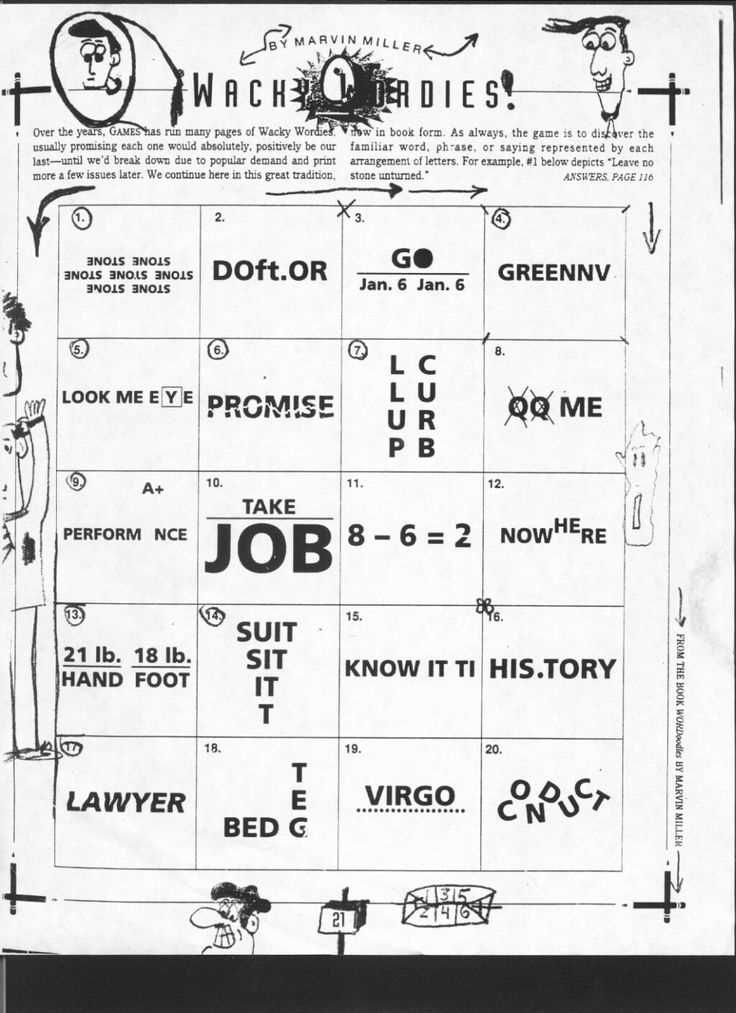
Wacky Words are a unique and creative way to enhance language learning and communication skills. By incorporating these silly and imaginative words into everyday conversations and writings, individuals can experience a variety of benefits.
1. Enhanced Vocabulary: Wacky Words introduce learners to new, uncommon, and often playful words. Using these words expands their vocabulary and allows them to express themselves in a more colorful and engaging way.
2. Improved Memory: Memorizing and incorporating Wacky Words requires mental effort and active recall. This exercise helps to improve memory and cognitive function, making it easier for learners to remember and retrieve information in other areas of life.
3. Increased Creativity: Wacky Words encourage individuals to think outside of the box and come up with unique and imaginative ways of expressing themselves. This fosters creative thinking and allows learners to explore new ways of communicating their thoughts and ideas.
4. Enhanced Communication Skills: By incorporating Wacky Words into conversations and written communication, individuals develop stronger communication skills. Using these words helps to captivate the listener or reader’s attention, making the message more memorable and impactful.
5. Fun and Engaging Learning Experience: Learning with Wacky Words is not only educational but also fun and entertaining. The playful nature of these words adds an element of excitement and enjoyment to the learning process, making it more engaging and motivating for learners of all ages.
In conclusion, embracing Wacky Words as a learning tool offers numerous benefits. From expanding vocabulary to enhancing communication skills and fostering creativity, these words add a touch of fun and excitement to language learning. So why stick with boring everyday words when you can spice up your language skills with some wacky and wonderful words?
How to use Wacky Words correctly?
If you’re looking to add some creativity and fun to your writing or conversations, using Wacky Words can be a great way to do so. However, it’s important to use them correctly to ensure that your message is clear and understandable. Here are some tips on how to use Wacky Words effectively:
1. Understand the meaning
Before using a Wacky Word, make sure you understand its meaning. Some Wacky Words have specific definitions or connotations, so using them in the wrong context may confuse your audience. Take the time to research and familiarize yourself with the intended meaning of the word.
2. Context is key
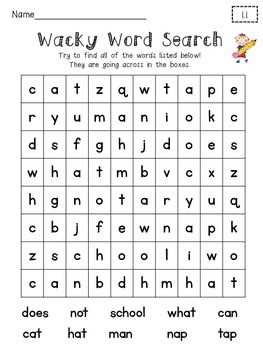
When using Wacky Words, context is key. Make sure the word you choose fits naturally within the sentence or conversation. Avoid forcing a Wacky Word into a sentence just for the sake of using it, as this can make your message unclear or confusing.
3. Use sparingly
While using Wacky Words can be entertaining, it’s important to use them sparingly. Overusing Wacky Words can make your writing or conversations difficult to understand and may distract from the main message. Choose your Wacky Words wisely and use them strategically for maximum impact.
4. Consider your audience
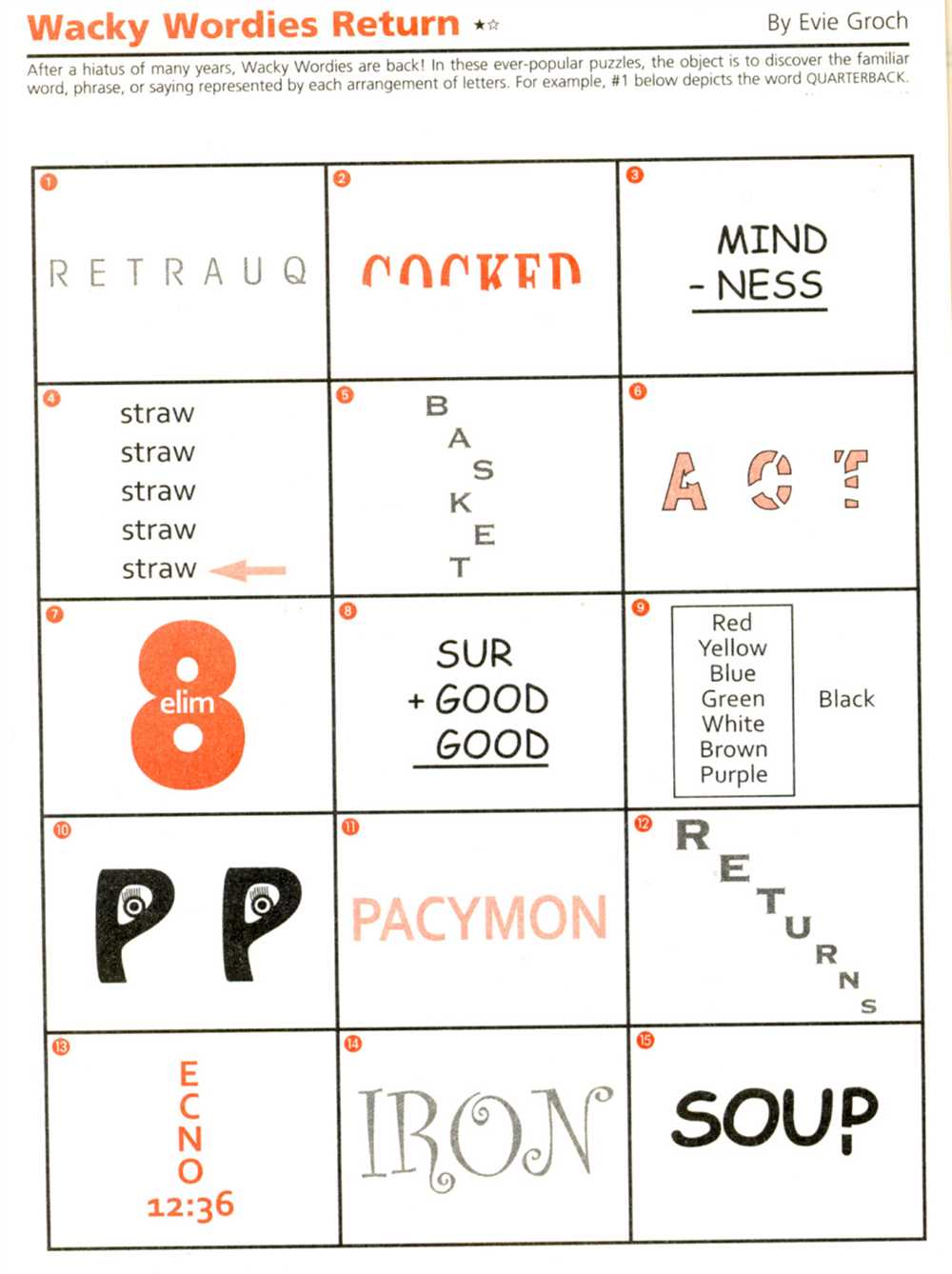
When using Wacky Words, consider your audience. Will they understand and appreciate the humor or creativity behind the word? If not, it’s best to use more traditional language to ensure clear communication. Adapt your use of Wacky Words based on the context and preferences of your audience.
5. Practice with confidence
Using Wacky Words may feel strange or uncomfortable at first, but with practice, it can become a fun and natural part of your communication style. Embrace your creativity and use Wacky Words with confidence, knowing that they add a unique touch to your writing or conversations.
Remember, the goal of using Wacky Words is to add creativity and fun to your communication. By understanding their meaning, using them in the right context, and considering your audience, you can effectively incorporate Wacky Words into your writing and conversations. So go ahead, let your imagination run wild, and enjoy the colorful world of Wacky Words!
Tips and Tricks
In this section, we will share some useful tips and tricks to help you navigate through the wacky world of words and their meanings. Whether you are a language enthusiast or just looking for some fun wordplay, these tips will surely come in handy.
1. Expand your vocabulary. One of the best ways to improve your word game is to continuously expand your vocabulary. Read books, listen to podcasts, and engage in conversations to expose yourself to new words. The more words you know, the better equipped you will be to decipher the wacky words.
2. Understand word origins. Knowing the origin of a word can often give you valuable clues about its meaning. Familiarize yourself with common word roots, prefixes, and suffixes to help decipher the wacky words you come across. For example, the prefix “un-” typically denotes negation, so if you encounter a wacky word with “un-” in it, it might mean the opposite of the base word.
- 3. Break down the word. When encountering a wacky word, try breaking it down into smaller parts. Look for familiar words or word elements within the wacky word. Sometimes, the combination of these smaller parts can provide hints about the overall meaning of the wacky word. For example, if you come across the word “megaquark,” you can break it down into “mega” and “quark” to infer that it refers to something large and related to subatomic particles.
- 4. Context is key. When attempting to decipher the meaning of a wacky word, pay attention to the context in which it is used. Sometimes, the surrounding words or sentences can provide valuable context clues that can help you make an educated guess about the wacky word’s meaning. Additionally, consider the tone and style of the text to gather further insights into the intended meaning of the word.
- 5. Consult a dictionary. If all else fails, don’t hesitate to consult a dictionary. Look up the wacky word to get its official definition and usage examples. This can help clarify any confusion and expand your understanding of the word. Additionally, a dictionary can provide alternative meanings or synonyms that may shed light on the wacky word’s intended meaning.
By following these tips and tricks, you’ll be well-equipped to decipher the wacky words you come across. Remember, exploring and playing with language can be a fun and enriching experience, so don’t be afraid to dive in and embrace the wackiness!